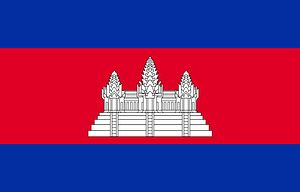Last week, the United States Agency for International Development (USAID) announced a new project to boost the capacity of Cambodian civil society organizations and promote government accountability.
On July 7, USAID said that the five-year, $9 million Cambodian Civil Society Strengthening (CCSS) project, which was awarded to the East West Management Institute, would help the groups improve their management, planning and analytical skills while allowing them to be more active in Cambodia.
According to a statement released by the U.S. embassy in Cambodia, the CCCS project will help civil society organizations by demonstrating how to establish management structures, organizational lines of communication, standard operating procedures and human resource management systems.
The project will also help fund research activities like polls and assessments to help groups better target their activities as well as small grants for important work in areas like land rights, gender-based violence and protecting Cambodia’s natural resources.
“We place a great emphasis on supporting civil society because an informed and active citizenry is the bedrock of a healthy democracy,” U.S. Chargé ďAffaires Julie Chung said in the U.S. embassy statement.
“We hope that this project will help Cambodia’s civil society to be even more effective in shaping a constructive and respectful conversation about laws and policies that affect the lives of ordinary Cambodians,” she added.
The assistance comes amid anxieties about the human rights situation in Cambodia, with the arrests of opposition and civil society members along with heightened political tensions between Cambodian ruler Hun Sen’s Cambodian People’s Party and the opposition Cambodia National Rescue Party (CNRP) ahead of local elections in 2017 and a general election in 2018.
U.S. Embassy spokesman Courtney Woods told The Cambodia Daily that while the grant was new, the project was “in line with a longstanding support that we’ve been giving to civil society here in Cambodia.”
He added that the money “wasn’t given in light of the current political climate.”

































